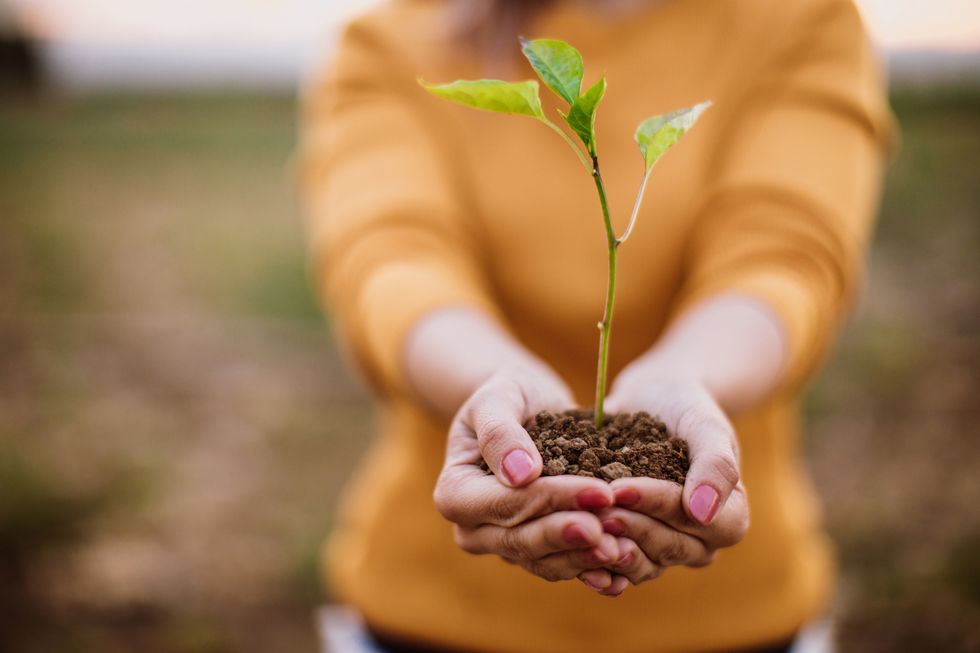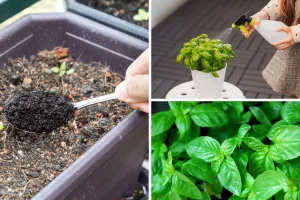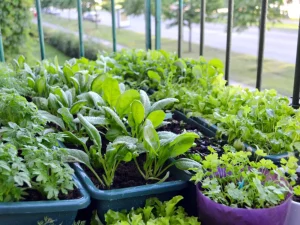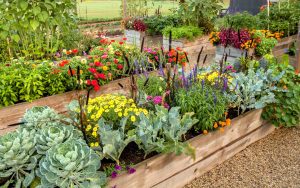At a time when people are concerned about the planet and want to live more sustainably, organic gardening has become a sign of hope. This isn’t just a way to grow plants; it is a way of thinking that makes people feel more connected to nature. Organic gardening is more than just not using synthetic chemicals. It is also about protecting soil, promoting biodiversity, conserving resources and keeping the world in good condition for future generations. In this in-depth study of organic gardening we learn how it works, what the benefits are and how it can transform our gardens and the planet.
How Do You Get to the Heart of Organic Gardening?
Organic gardening is a way of doing things that is based on living in peace with nature. This means growing plants and treating dirt without the use of chemicals or genetically modified organisms. Organic gardeners use natural processes and biological rhythms to create an ecosystem that can take care of itself. In this endeavor, they can rely on compost, organic fertilizers, companion plants and beneficial insects.
What You Need to Know about Organic Gardening?
Healthier, Nutrient-Dense Produce
Dirt is the first step in organic gardening. Organic farming is based on soil that is healthy and full of beneficial microorganisms and organic waste. Through measures such as composting and spreading mulch, gardeners can protect the soil and make it a healthy place for plants to grow.
Biodiversity and Planting with Others
Organic fields are filled with different types of plants and animals. Planting a variety of crops attracts good insects and drives away bad insects, creating a healthy ecosystem. Companion planting is an important part of organic gardening. This is when certain plants grow together to help each other grow or to repel pests.
Chemical-Free Pest Control
Organic gardeners use natural methods to repel pests. Control aphids and other pests by introducing beneficial insects such as ladybugs and lacewings. Carefully placed plants such as marigolds can deter nematodes and other pests. These methods maintain the natural balance of your garden and reduce the need for pesticides.
Composting and Recycling
Composting is a great way to recycle organic waste produced by organic farming. Kitchen waste, yard waste and other organic materials are turned into nutrient-rich compost. This returns valuable nutrients to the soil and reduces the amount of waste ending up in landfills.
How to Save Water
Water is a precious resource, especially in places where water is scarce. Organic gardens use methods to conserve water, such as mulching to retain moisture, drip irrigation systems and rainwater harvesting. These practices ensure good use of water and help plants grow well.
Why You should Switch to Organic Gardening?
Fruits and Vegetables with more Nutrients
Fruit, vegetables and herbs from organic horticulture are packed with important nutrients. Because artificial chemicals do not harm organic food, it often contains more vitamins, minerals and antioxidants. This ensures better nutrition for those who consume it.
Ways that are Good for the Environment
Organic gardening does not use chemical pesticides and fertilizers and is good for the planet. It keeps the water clean, protects beneficial bacteria and contributes to the health of the entire ecosystem. By harvesting organic food, gardeners can learn about their impact on the environment and help make the planet healthier.
Promoting Biodiversity
Ecosystems thrive in organic gardening. Birds, bees, butterflies and other pollinators can live there thanks to the wide variety of plants and the absence of chemicals. These gardens stimulate different lives and make the world a better place.
Reduced Carbon Content in the Air
Organic farming often uses materials and seeds from the region. Organic gardening reduces the need for long-distance transportation and helps local ecosystems, reducing carbon emissions and reducing environmental impact.
Build Community and Education
Organic gardens can be used to teach people about healthy living, sustainable practices and caring for the earth. They also build a sense of community by bringing people together to share information, resources and the joy of caring for the planet.
Make the Future more Stable with Organic Gardening:
Our gardens are the first step towards sustainability. It starts with adding natural nutrients to the soil, growing a variety of crops and understanding the value of companion planting. It means being aware of the delicate balance of nature and living in harmony with it. Organic gardening is more than just a way to grow plants; it is a way of life and a commitment to respecting the land and preserving its beauty for future generations.
As gardeners, teachers and environmental stewards, we have the power to transform our landscapes into healthy, sustainable oases. Through organic farming, we sow the seeds for a greener, healthier future that protects the land, feeds people and protects the beauty of nature. So let’s be sustainable by following the rules of organic gardening and watch our gardens and the world change.
FAQs:
1. What are the basic principles of organic gardening? How do they contribute to sustainable living and environmental protection?
Discover the core principles of organic gardening and learn how practices such as soil health, biodiversity, natural pest management, composting and water conservation form the basis of a permaculture approach to gardening. Delve into their impact on the environment and their role in promoting eco-friendly living.
2. How does organic gardening promote biodiversity and the health of local ecosystems?
Revealing the interconnected relationship between organic gardens and biodiversity. Learn about the variety of plant species, beneficial insects and pollinators that organic gardening attracts. Discover how these gardens become thriving ecosystems that support the health and balance of the local environment.
3. What role does organic gardening play in promoting nutritious, chemical-free produce? How does this lead to a healthier lifestyle for consumers?
Learn more about the nutritional value of organic produce and compare it to conventionally grown crops. Discover how organic gardening methods can improve the nutritional value of fruits, vegetables and herbs. Understand the positive impact on human health and encourage consumers to adopt a healthier lifestyle.
4. How can organic gardening be a community building tool and an educational platform for sustainable practices?
Explore the social aspects of organic gardening, with an emphasis on how it brings communities together. Discover how these gardens serve as educational centers to teach people about environmental conservation, permaculture, and healthy living. Learn about their role in building strong, ecologically conscious communities.
5. What are the challenges and solutions to transitioning from traditional gardening methods to organic practices, and how can aspiring gardeners overcome these obstacles?
Addresses the challenges individuals face in transitioning from conventional to organic gardening methods. Discuss common barriers such as pest control, soil enrichment, and adapting to new technology. Providing practical solutions and tips to help aspiring gardeners on their path to organic, permaculture gardening.



